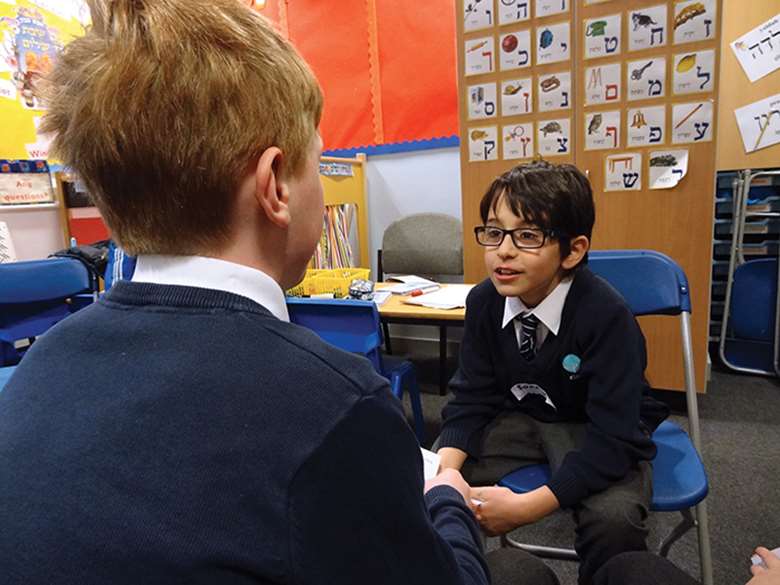Restorative Practice in Schools
Emily Rogers
Tuesday, September 26, 2017
Social enterprise Restorative Thinking Ltd was commissioned by Liverpool City Council to help six schools embed restorative practice.

School data suggests the two-year pilot was successful in its primary aim of improving behaviour, also showing decreases in exclusions and improvements in attendance and attainment.
Liverpool City Council now hopes to mainstream restorative practice across its schools, through "learning events".
ACTION
Restorative Thinking's work with Liverpool schools resulted from the council's drive to improve pupil behaviour and reduce exclusions. Gail Porter, families programme director at Liverpool City Council, knew the benefits of restorative practice from working in criminal justice, glimpsing potential for a "softer, more conversational approach" in schools. So the council's Families Strategic Group commissioned Restorative Thinking to help six schools embed it.
Porter wanted to test a "whole-school" approach, involving leaders, teachers, support and ancillary staff, pupils, parents and governors.
"Many schools recognise the benefits of restorative practice and may dip their toe in, sending staff on training," explains Restorative Thinking executive director Lesley Parkinson. "But it can be hit and miss if not everyone's signed up."
The two-year pilot from May 2015 involved one secondary, two primary and three special schools. Each created a "guiding team", producing three statements outlining hoped-for changes, such as improving relationships. Each team compiled a "road map" and action plan towards these aims, identifying the training needed, which Restorative Thinking delivered. Each school selected 10 vulnerable pupils to try restorative approaches with.
The pilot started with a day's whole-school training, introducing key principles including doing things with people rather than to or for them; restorative questioning - helping people reflect on the impact of their behaviour and how to put things right; and "fair process" - involving people in decisions, explaining the reasoning behind them and ensuring everyone understands what is expected of them. The guiding team received training to support colleagues in adopting restorative practice, with separate sessions for specific staff groups. One primary's maths department received training to improve behaviour and attainment in maths. "A whole-school restorative approach encompasses restorative practice through all communication and interaction with pupils during lessons," Parkinson explains.
Schools are assisted by Restorative Thinking's toolkit, which contains resources for classes, groups and individual pupils, helping them develop emotional literacy, take responsibility and understand the connection between thoughts, feelings and behaviour.
As part of its three-day training, the guiding team at the pilot's secondary school, The Academy of St Francis of Assisi, learned how to facilitate restorative conferences or meetings. "This could just be about getting two students together after an incident, asking: ‘what happened, what were you thinking and how do you think the other person felt'?" explains teacher Michelle Morgan.
Restorative Thinking's director Chris Straker trained the school's peer mentors and canteen staff in restorative questioning, as well as office staff, who used it in phone calls from parents about incidents. Morgan says this technique has "completely changed" the way she teaches and relates to pupils.
Teachers, pupils and parents at Morgan's school collectively revised its detention process, resulting in a restorative meeting for pupils before any further action.
Monday morning "circle time" was introduced for all classes, creating a safe place to strengthen relationships, open up and become more empathetic. Questions included: "If you had a time machine, what would you do with it?" "One teacher said he found out more about students from 15 minutes a week, than from several years of teaching," says Morgan.
IMPACT
Morgan says teachers saw a "huge impact" on pupils' ability to "work out what had gone wrong and change things as a result". Fixed-term exclusions decreased by 51 per cent in the year to May 2017, compared with the previous year.
Data from pilot schools shows improvements in behaviour, attendance and classroom attitude and attainment, with one primary recording an improvement in maths performance across the school. Another primary's incidents of pupils breaking its rule about kindness fell to 81 between autumn 2015 and spring 2016, from 237 a year earlier. Cases of pupils failing to behave responsibly reduced from 335 to 106 and of pupils failing to respect others from 428 to 203.
Of the 10 pupils most at risk of permanent exclusion at Morgan's school in autumn 2015, eight were doing GCSEs there the following summer. One described restorative practice as "the best thing that's happened to me". He added: "It's influenced me to be able to cope with my anger and make the right decisions when angry."




